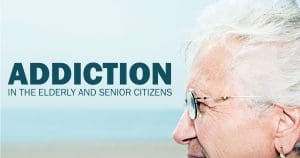Elderly and Addiction: Identifying and Interventions for Substance Misuse in Older Adults (2 HR) Syllabus
I. Understanding Substance Use in the Elderly
- Define use, misuse, and abuse with clinical examples
- Explore why substance use in older adults is underdiagnosed and often invisible
- Review the growing prevalence of substance use disorders in adults over 60
II. Biopsychosocial Risk Factors and Distinctions
- Examine chronic health conditions, cognitive impairment, and medication polypharmacy
- Understand social isolation, loss, frailty, and health disparities as contributing factors
- Discuss the impact of ageism and cultural stigma on identification and treatment
III. Two Types of Elderly Substance Users
- Define and differentiate “Hardy Survivors” and “Late Onset” users
- Explore personal histories and case studies reflecting both user groups
- Analyze the influence of life events, grief, and trauma on substance use patterns
IV. Common Substances of Concern
- Alcohol as the primary substance misuse issue in older adults
- Benzodiazepines and risks including falls, cognitive decline, and dependency
- Opioids and the impact of the opioid crisis on elderly populations
V. Physical and Mental Health Impacts
- Effects of substance use on motor function, cognition, and chronic disease
- Risks of overdose and interactions with prescribed medications
- Difficulties in recognizing signs of misuse due to symptom overlap with aging
VI. Effective Identification and Screening Strategies
- Importance of family, caregivers, and non-medical staff in early detection
- Brief screening tools: PHQ-9, GAD-7, AUDIT-C, CAM, ORT
- Use of ASAM criteria for placement and treatment planning
VII. Evidence-Based Interventions
- Motivational Interviewing: techniques, readiness for change, and respectful collaboration
- Cognitive Behavioral Therapy: skills training, thought reframing, and relapse prevention
- Integrating MI and CBT for effective client engagement and empowerment
VIII. Legal and Ethical Considerations
- Balancing client autonomy with provider duty to intervene
- Confidentiality and privacy concerns in substance use disclosures
- Federal and state legal protections and professional responsibilities
IX. Resources and Continuing Care Strategies
- Connection to geriatric mental health and substance use professionals
- Addressing social support, transportation, and caregiver involvement
- Recommended toolkits and evidence-based programs for follow-up



